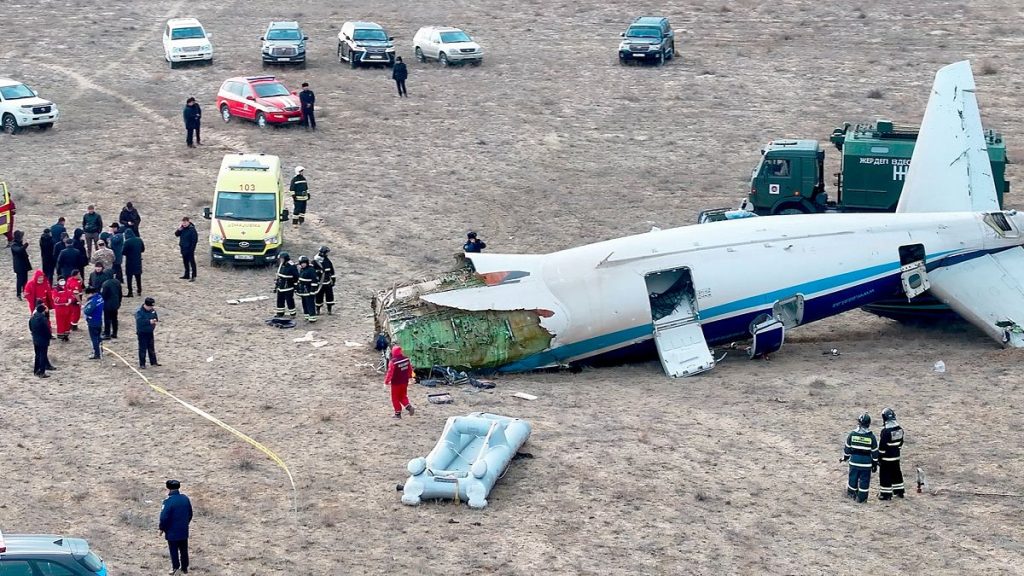The tragic crash of Azerbaijan Airlines Flight 8243 on December 25th, 2024, near Aktau, Kazakhstan, claimed the lives of 38 individuals and injured 29 others. A preliminary report released by the Azerbaijani government revealed that the Embraer ERJ 190-100 jet suffered catastrophic damage to critical flight systems caused by “foreign objects.” Investigators discovered “numerous through and blind damages” on the fuselage, tail section, and aft part of the aircraft, including the stabilizers. The report also highlighted the retrieval of unidentified metallic debris, suggesting a possible missile strike, and noted two distinct “external noises” recorded by the Cockpit Voice Recorder (CVR) shortly before the crash, occurring 24 seconds apart. This incident occurred after two unsuccessful landing attempts in Grozny due to adverse weather conditions, prompting the captain’s decision to return to Baku.
While the preliminary report refrained from definitively identifying the source of the damage, it explicitly ruled out a bird strike. The sequence of events leading to the crash began with the loss of all primary flight controls, followed by cabin depressurization and reports of exploding seats. The aircraft ultimately crashed approximately 5 kilometers from Aktau Airport’s Runway 11, breaking apart and catching fire upon impact. The devastating loss of life included the captain, first officer, senior flight attendant, and 35 passengers.
Prior to the official report’s release, sources indicated to Euronews that electronic warfare systems had been deployed against the Azerbaijani aircraft as it approached Grozny, followed by a missile strike from a Russian Pantsir-S1 air defense system, allegedly transferred from Syria to Chechnya. These claims significantly escalated the situation, transforming the crash investigation into a potential international incident. Azerbaijani government sources directly accused Russia of downing the aircraft with a surface-to-air missile, asserting that shrapnel from the explosion near the aircraft mid-flight had injured passengers and crew. These same sources claimed the damaged aircraft was denied landing at Russian airports despite the pilots’ emergency requests and was directed towards Aktau, Kazakhstan, across the Caspian Sea. Moreover, it was reported that the plane’s GPS navigation systems were jammed throughout its flight path over the sea.
The accusations leveled against Russia by Azerbaijani authorities led to a direct confrontation between the two nations. Azerbaijani President Ilham Aliyev publicly stated that Russia had shot down the plane, although he stopped short of claiming intentional action. He demanded an apology, an admission of guilt, punishment for those responsible, and compensation for Azerbaijan, the injured passengers, and the crew. While Russian President Vladimir Putin offered condolences and referred to the crash as a “tragic incident,” he did not accept responsibility. Aliyev later confirmed that Putin had apologized, fulfilling the first of his demands.
The investigation into the crash took on an international dimension with Kazakhstan’s decision to send the aircraft’s flight recorders to Brazil for analysis. This move signaled a commitment to transparency and a potential alignment with Azerbaijan’s pursuit of a thorough and impartial investigation. The involvement of a third party aimed to ensure the integrity and credibility of the findings, given the sensitive political climate surrounding the incident.
The preliminary report represents the first official documentation of the crash investigation. A final report is expected within one year of the incident, as per international regulations. This final report will be crucial in determining the precise cause of the crash and addressing the serious allegations against Russia. The international community will be closely watching the outcome of the investigation and its potential ramifications for relations between Azerbaijan and Russia. The crash of Flight 8243 underscores the devastating consequences of conflicts and the importance of thorough and transparent investigations to establish accountability and prevent future tragedies. The search for truth and justice for the victims and their families remains paramount.














